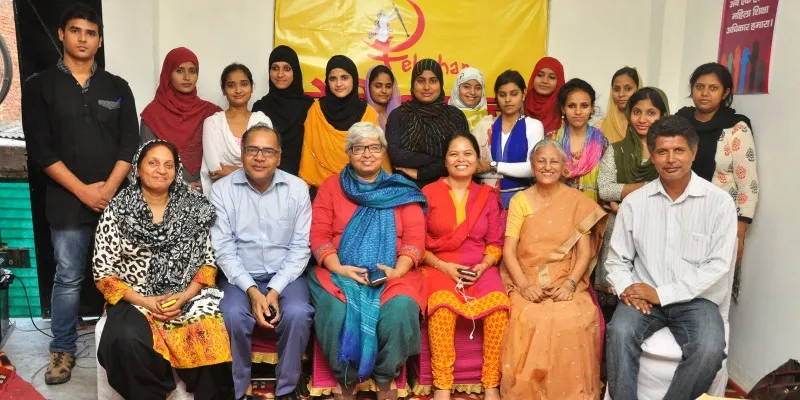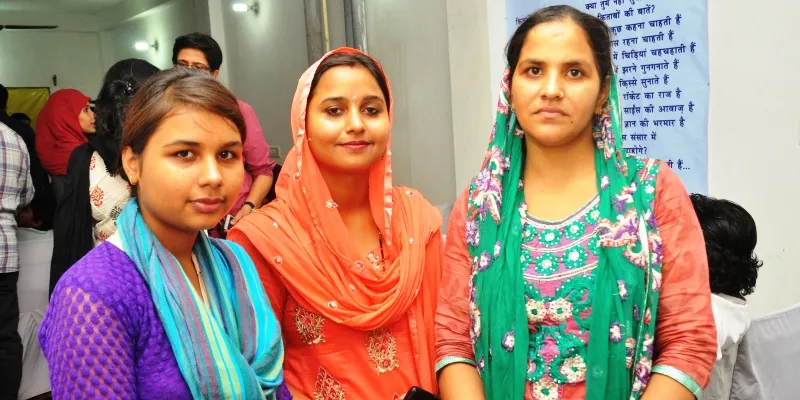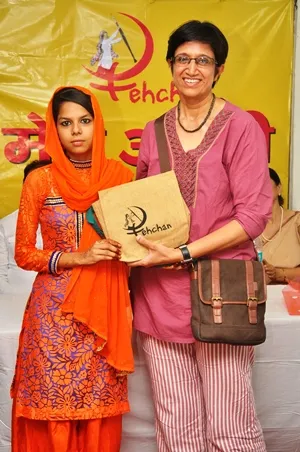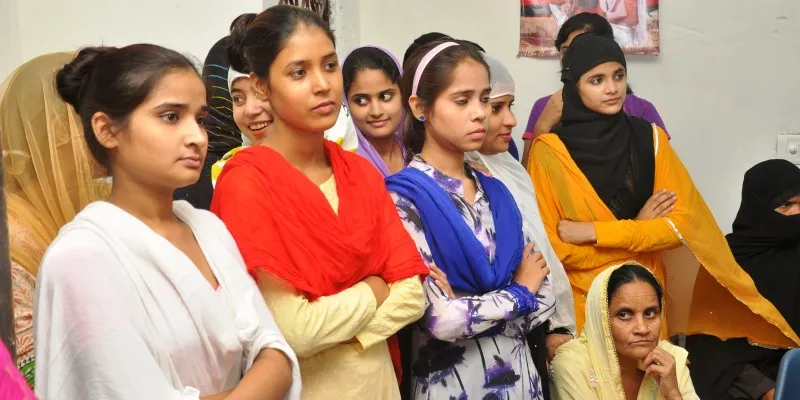Pehchaan teaches and mentors Muslim women in low socio-economic areas to help gain an identity
Jaitpur Ext is a resettlement colony near Okhla with poor and lower middle-class families making up over 90 percent of the residents. Most people are daily wage labourers and in almost every household one could find girls who had dropped out school, owing to financial and social restraints. But as 32-year-old Farida Khan, Director of Pehchaan Study Centre, accounts, things have changed with the arrival of Pehchan.
Pehchan started working in Jaitpur in 2011 as an offshoot of ANHAD (Act Now For Harmony and Democracy) campaign. But today, Pehchaan has its own identity as a registered organisation working to empower Muslim women through education and vocational training.

“We called it Pehchaan because the whole idea was to provide an identity to these young women”, says 58-year-old Shabnam Hashmi, a noted activist, founder of ANHAD and one of trustees of Pehchaan.
Story of hope
“The education that we received has empowered women in the true sense,” says Farida, a child bride who got divorced at the age of 16, and lived in Nizamuddin Basti, where her family had migrated from Mewat, Haryana. She had come to Shabham as an early student at Shehar Study Centre, another offshoot of ANHAD. Over the following eight years, Farida completed her Class XII CBSE exams, did courses from Jamia Urdu, equivalent to graduation, and BEd. Her story is also documented in a documentary titled Story of Hope. Today, Farida is the Director of Pehchan Study Centre.
“Farida was my first student. The aim of starting Pehchaan Study Centre is to make women like her take it forward on their own” says Shabham .
Farida credits her success to Shabham and her relentless efforts. Today, she is taking the baton ahead. “While over 30 girls have passed their high school and 12th from the centre, more than 1,000 Muslim women and girls have been made literate in the process,” says Farida.

Taking the baton ahead
Today, Pehchaan has around 300 young women enrolled in the study centre. The girls who have dropped out from schools are taught at the centre by permanent staff teachers and volunteers. The session starts from May every year. As part of the curriculum, English, Hindi, Urdu, Home Science and other subjects as per Jamia Senior Secondary School are taught to the students. They then appear for Class X and XII examinations as private candidates from Jamia Milia Islamia.
Besides educational support, Pehchaan also imparts vocational training to many women and girls in the area. Tailoring and beautician courses are also offered to women willing to earn a livelihood. “These courses such as tailoring and cutting may look like clichés…but in a conservative society, these can very well become the entry points,” says Shabham.
However, with the changing times, the study centre has also introduced computer training. Pehchaan students are also given exposure to the outside world, where they are regularly taken to attend seminars, conferences, workshops. The staff also helps the community in accessing various government and minority schemes.
Shabnam recalls how well some of her early students have done in their lives. Some have joined Teacher’s Training Course, some are doing polytechnic, while there are some who have joined prestigious institutions like Aga Khan Foundation.

Besides Jaitpur, Pehchaan has been working in far-flung villages of Mewat, Kashmir and Bihar. It has specifically focussed on Mewat and runs several centres in the region, one of the most backward Muslim-dominated areas of this country. But running educational and vocational centres in backward regions is a mammoth task. The conservative set-up is the prime reason that the families are not willing to send their daughters for adult literacy classes. It takes a lot of counselling to convince the families, admits Farida.
New avenues
On the other hand, Shabnam is also saddened by the fact that very little is done by the policy makers. “In the set pattern of policy making, government as well as independent funding agencies and philanthropists there have almost zero engagement with the specific needs of the community,” she points out.

Pehchaan plans to expand to other minority -concentrated areas in Delhi. Shabham admits to a paucity of funds stopping the organisation from expanding as per plans.
The digital space seems to be the next step. This year, Iqbal Ahmed, a noted journalist and one of the trustees of Pehchaan, started an online campaign to raise funds. The campaign, which ended in July this year, raised more than Rs 2,50,000. The money raised will be used to start two more centres in the low socio-economic areas in and around Delhi. “If Muslim adolescent girls who have dropped out have to be brought back into the educational stream, then it is very important to open centres like Pehchaan for girls inside the minority areas and encourage them to restart their education,” says Iqbal.
For the women who brok out of the community-inflicted chains, it’s a new journey in search of their true identity.
(Disclaimer: The views and opinions expressed in this article are those of the author and do not necessarily reflect the views of YourStory.)







